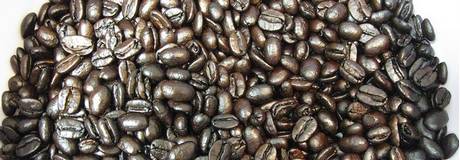Time for coffee and tea
Decaffeinated coffee caffeine content
Tea and coffee articles
Recommended Pages
The Caffeine Content of Decaffeinated Coffee
Despite caffeine having many desirable properties such as increased cognitive functioning and mental vision, and a stimulatory effect that leads to a decrease in tiredness, there are many people who choose not to consume caffeine. This choice may be down to personal preferences or through medical necessity. One of the common reasons that people choose not to consume caffeine is because it may lead to hypertension or loss of sleep.
As people who do not require caffeine still enjoy the taste and aroma of coffee, and may also benefit from its antioxidant properties and dietary fiber content they choose to consume coffee in a decaffeinated form by using decaf coffee beans. Although the decaf caffeine coffee is described as being decaffeinated it still contains a small but variable amount of coffee.
Research has shown that 50% of moderate coffee drinkers could feel increased mood changes when consuming as little as 18 mg of caffeine. In a typical brewed filter coffee there can be as much as 190mg in a 16 ounce coffee. Research by McClusker and colleagues at the university of Florida college of medicine carried out an investigation into the levels of caffeine found in decaffeinated coffee.
 Photograph of decaffeinated coffee beans by originsroasters.
Photograph of decaffeinated coffee beans by originsroasters.
Variable Caffeine Amounts in Decaffeinated Coffee
The research team purchased 22 cups of decaf coffee from coffee shops in the USA. They found that the caffeine concentration of coffee ranged from 3 to 15.8 mg per shot of coffee with an average of 7mg per cup. Further research looked at variance between caffeine amounts in Starbucks decaffeinated coffee on different days. It was found that Starbucks decaffeinated coffee varied in caffeine content from 12 to 13.4mg.
As it has been shown that as little as 10mg of caffeine can stimulate mood in light caffeine consumers it is thought by the authors that people should be aware of the caffeine content in decaffeinated coffee.
By drinking many cups a consumer could soon be up to a level of caffeine that is found in a normal caffeinated coffee. As caffeine is addictive the authors went on to describe that the amount of caffeine contained in decaffeinated coffees is enough to be reinforcing. Further research suggests that drinking a couple of cups of decaffeinated coffee per day is a good way of beating caffeine addiction, as taking about 50mg of caffeine a day reduced the likelihood of getting side effects such as headaches when giving up caffeinated coffee.
As decaffeinated coffee contains caffeine the authors of the paper feel that it is important that people who are put on a caffeine free diet for medical reasons do not consume decaf coffee.
ReferencesMcCusker et al, (2006). Caffeine content of decaffeinated coffee. J. Analy. tox. 30: 611 to 613
Tanda et al (2000). Alteration of the behavioral effects of nicotine by chronic caffeine exposure. Pharmacol. Biochem. Behav. 66: 47 to 64.